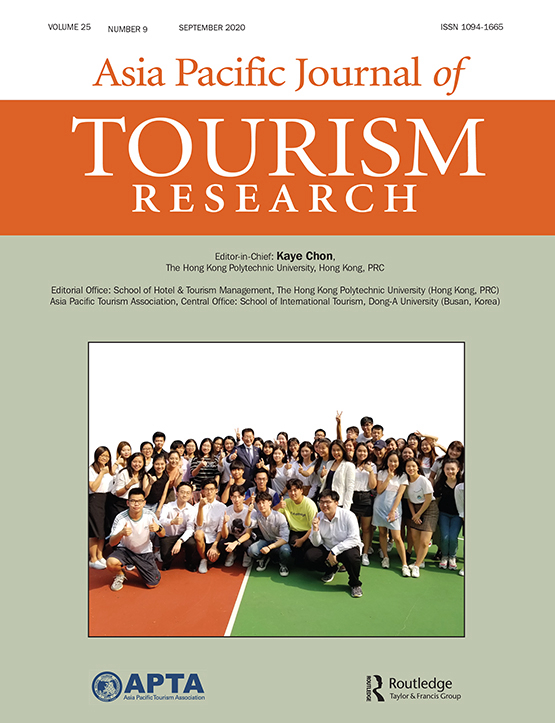文化遗产目的地形象的基本维度对目的地忠诚度的影响
IF 3.3
3区 管理学
Q1 HOSPITALITY, LEISURE, SPORT & TOURISM
引用次数: 0
摘要
ABSTRACT 该研究采用 "认知-情感-联想 "理论来解释目的地形象与对文化遗产地的忠诚度之间的关系。在对 34 项相关研究和深入访谈进行系统综合后,本研究对 424 名受访者的数据集采用了结构方程模型。这项研究确定了目的地形象的三个组成部分:认知、情感和内涵。认知形象的基本组成部分通过二阶测量模型进行了验证,发现了显著的关联。结果显示,认知形象影响情感形象和目的地忠诚度。这项研究为遗产目的地形象形成理论做出了贡献。本文章由计算机程序翻译,如有差异,请以英文原文为准。
Influences of the underlying dimensions of destination image on destination loyalty in a cultural heritage destination
ABSTRACT The “cognitive-affective-conative” theory was used to explain the relationship between the destination image and loyalty to a cultural heritage site. After a systematic synthesis of 34 pertinent studies and in-depth interviews, the study applied structural equation modeling to a dataset of 424 respondents. This study identified three components of the destination image: cognitive, affective, and conative. The underlying components of the cognitive image were validated using a second-order measurement model, which discovered significant associations. The results revealed that the cognitive image influenced the affective image and destination loyalty. This study contributes to the theory of heritage destination image formation.
求助全文
通过发布文献求助,成功后即可免费获取论文全文。
去求助
来源期刊

Asia Pacific Journal of Tourism Research
HOSPITALITY, LEISURE, SPORT & TOURISM-
CiteScore
6.80
自引率
4.00%
发文量
31
期刊介绍:
Asia Pacific Journal of Tourism Research is the official journal of the Asia Pacific Tourism Association (Founded September 1995) and seeks to publish both empirically and theoretically based articles which advance and foster knowledge of tourism as it relates to the Asia Pacific region. The Journal welcomes submissions of full length articles and critical reviews on major issues with relevance to tourism in the Asia Pacific region.
 求助内容:
求助内容: 应助结果提醒方式:
应助结果提醒方式:


